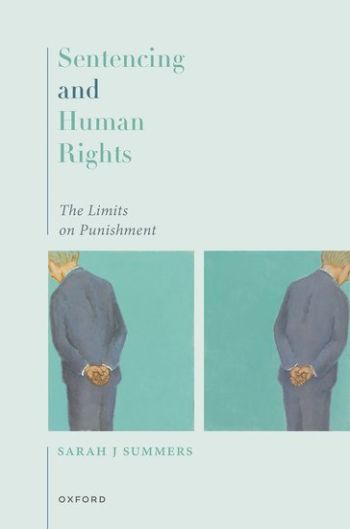
There has been little sustained consideration of the ways in which human rights act to safeguard the individual from substantive unfairness or injustice in the imposition of punishment. Human rights might be expected to play a pivotal role at the sentencing stage, regulating the process and substance of sentencing, mapping out the state's role, and affording it legitimacy in the imposition of punishment. The traditional view that sentencing theory is best understood as a branch of moral philosophy has obscured the importance of consideration of the special nature of state punishment as mediated by and through law and the significance of human rights principles, notably legality, proportionality, equality, and judicial responsibility for the determination of the sentence. Sarah Summers focusses on sentencing practices which are widespread across Europe and indeed further afield and their compatibility with constitutional or human rights principles.
Sentencing and Human Rights develops a systematic account of the importance of human rights principles at sentencing stage. Consideration of these principles provides the basis for an examination of the way in which they might be expected to limit important sentencing practices, such as the imposition of aggravated sentences for previous convictions, the treatment of confessions and mandatory minimum sentences. It is not just that punishment follows a multitude of aims but rather that the balance of these aims may, and in the context of lengthy prison sentences almost certainly will, change during the sentence. This examination of the human rights limits on the sentence suggests that it might be necessary to reconsider the way in which state punishment is conceptualised in sentencing theory.